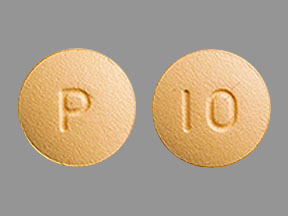Prasugrel Disease Interactions
There are 3 disease interactions with prasugrel.
Prasugrel (applies to prasugrel) bleeding
Major Potential Hazard, Moderate plausibility.
Prasugrel is contraindicated in patients with active pathological bleeding such as peptic ulcer or intracranial hemorrhage, as this agent increases the risk of fatal bleeding.
Prasugrel (applies to prasugrel) coronary and cerebral vascular disease
Major Potential Hazard, Moderate plausibility. Applicable conditions: Ischemic Heart Disease, Cerebrovascular Insufficiency
Prasugrel is contraindicated in patients with a history of prior transient ischemic attack (TIA) or stroke. Patients who experience a stroke or TIA while on prasugrel generally should have therapy discontinued. The risk of bleeding is increased in patients receiving prasugrel who undergo coronary artery bypass graft. If possible, prasugrel should be discontinued at least 7 days prior to the procedure.
Prasugrel (applies to prasugrel) renal/liver disease
Moderate Potential Hazard, Moderate plausibility. Applicable conditions: Renal Dysfunction
No dosage adjustment is necessary for patients with renal impairment. No dosage adjustment is necessary in patients with mild to moderate hepatic impairment. Caution should be exercised in patients with end-stage renal disease and those with severe hepatic disease as such patients are generally at higher risk of bleeding.
Switch to professional interaction data
Prasugrel drug interactions
There are 228 drug interactions with prasugrel.
More about prasugrel
- prasugrel consumer information
- Check interactions
- Compare alternatives
- Pricing & coupons
- Reviews (29)
- Drug images
- Side effects
- Dosage information
- During pregnancy
- Drug class: platelet aggregation inhibitors
- Breastfeeding
- En español
Related treatment guides
Drug Interaction Classification
| Highly clinically significant. Avoid combinations; the risk of the interaction outweighs the benefit. | |
| Moderately clinically significant. Usually avoid combinations; use it only under special circumstances. | |
| Minimally clinically significant. Minimize risk; assess risk and consider an alternative drug, take steps to circumvent the interaction risk and/or institute a monitoring plan. | |
| No interaction information available. |
See also:
Further information
Always consult your healthcare provider to ensure the information displayed on this page applies to your personal circumstances.


